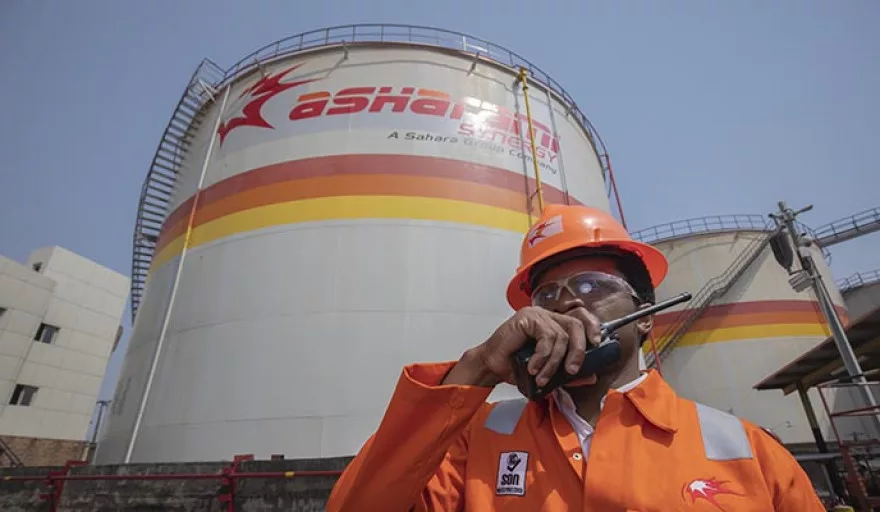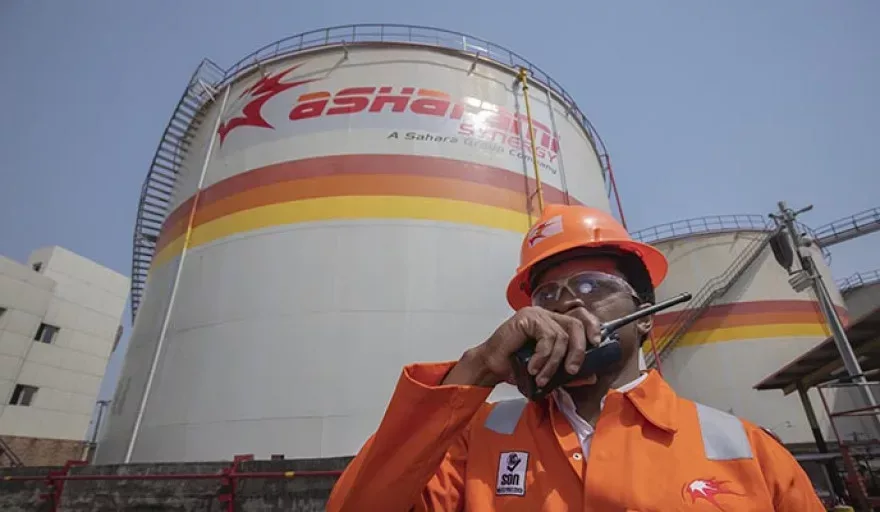
Written by: Tom Wadlow
“A whole bunch of youthful exuberance and optimism brought me back to Nigeria.
“A whole bunch of youthful exuberance and optimism brought me back to Nigeria.
“Between my husband and I we had probably spent around 30 years outside of Africa, which exposed us to different ways of learning and working.
“I think I was fortunate to meet someone with a similar mindset to myself, which is that having benefitted greatly from this experience we wanted to come back home and contribute the skills we have to our home countries, and essentially help to develop our continent.”
Pearl Uzokwe can scarcely believe that it has been a decade since she decided to return to Africa.
Graduating in law from the University of Bristol and obtaining a postgraduate diploma from the College of Law in London, the next five years were spent gaining experience in legal practices in the UK capital before the lifechanging decision to relocate was made.
Today, Uzokwe serves as Director of Governance and Sustainability at Sahara Group.
A leading international energy and infrastructure conglomerate with operations in over 38 countries across Africa, Middle East, Europe and Asia, the company being one of relatively few African-owned multinationals operating on the global energy stage.
For Uzokwe, who has worked her way up the ranks from Legal Manager, the decision to leave the UK has been more than vindicated.
“It has certainly been a journey,” she quips. “There have been challenges along the way, but also an immense amount of satisfaction in contributing to the development of the company.
“Sahara has allowed me to make a real contribution and a difference that I believe is far reaching – I feel my voice is heard and that my experience from other places is valued.”
And the company has grown in tandem. During the past decade its headcount has increased by a factor of three to 4,000, while key business areas such as the legal department have also expanded alongside entry into new markets around the world.
Uzokwe has been in her current position for roughly a year, but why did she cross law with sustainability?
“Again, this is about making an impact, and the remit of sustainability and governance definitely enables that,” she answers.
“Sustainability takes all that I know from a legal perspective into a whole new dynamic, and this is exciting for me. It is about building relationships and joining up stakeholders right across the organisation and the industry. I have found this to be a great fit for my skills but also discovered I had skills that I never knew I had.”
So, the million-dollar question – what Uzokwe’s definition of sustainability?
“There is so much theory around sustainability and what it actually is, but we have to try and communicate this to people,” she says.
“For me the key word is continuity. Whether it be from an environmental standpoint, a financial standpoint or a social standpoint, sustainability to me means ensuring continuity for generations to come.”
A simple, yet unusually clear answer, Uzokwe and Sahara have also enacted what the Director of Governance and Sustainability describes as an Africa approach to the issue, one defined by effective and genuine engagement of people.
This is all about communication. “One thing we have learned is that when it comes to ensuring you have a sustained impact in countries, the first thing you have to do is listen effectively to the people who will feel the impact,” Uzokwe explains.
“If you look at something like the progression of the UN’s Sustainable Development Goals with a critical eye, you can argue that the solutions put forward are not exactly what is needed in these communities.
“The beauty of what we have here, a foundation which has been in place for the past 22 years, is that we have people on the ground who speak the local language, who interact with people and don’t engage superficially. We speak with leaders in the local community – be they religious leaders, female leaders, youth leaders – because we know the importance of getting buy-in to what we are doing.”
This leads into the next part of Sahara’s sustainability approach, which is making sure it is fit for purpose. Here, Uzokwe brings up the example of talking about climate change in Nigeria.
“We can’t have the same discussions at our office in Lagos as we do when we go into local communities,” she continues.
“People are living on very small incomes and have more immediate and pressing needs in their day-to-day lives, so we have to look at the language and simplify what we are talking about. This means we need to present sustainability in a way that will make people care.”
Relating to identifiable topics such as flooding is one such way, Uzokwe highlighting how people can relate to the fact they have witnessed an increase in flood activity, and that this can be linked to climate change.
Other issues such as affordability also need to be taken into account, with many Nigerian citizens not in a position to shift to a more sustainable lifestyle for purely altruistic reasons – in these cases, other benefits to participation in things like recycling programmes need to be factored in.
However, once the explanation hurdle has been cleared, the way has been paved for stakeholders in government, private enterprise and other parts of civil society to mobilise action.
“One way we have helped do this is through our support of Enactus, which is the world’s largest experiential learning platform,” Uzokwe says.
“This focusses on helping people to solve problems in their own communities. Every year there is a competition in Nigeria for students to come up with ideas, with the winning solutions being backed financially. One of the recent winners was a project which involved a bio-digester converting waste to energy.”
But what of the bigger sustainable energy picture in Nigeria, and indeed Africa at large?
While the region only accounts for around four percent of global emissions, developing a responsible energy mix is still of paramount importance given the continent has yet to develop the industrial capacity of the likes of Europe, Asia and America.
“When you further consider that half the continent still lacks proper access to power, you have to think even harder about what the energy mix should be,” Uzokwe adds. “When I think about renewables the word I use is transition – nothing will happen overnight, so it is about laying the groundwork.”
Given so many people lack access to power because they live in difficult to reach places, off-grid solutions will undoubtedly come to the fore, especially given Africa’s abundant potential to produce solar energy.
“Each country must also play to its own strengths though,” says Uzokwe. “If you take Nigeria, where we are headquartered, around 15 percent of energy is generated using renewable sources, and almost all of this derives from hydroelectric power that was set up in the 1970s and 1980s.
“The potential for Nigerian hydro is around 15,000 MW, which is a significant amount of power given that around 4,000 MW is produced via hydro at the moment. My point is that we must look at our own strengths and what we can maximise first.”
Other factors such as government subsidies and disposable incomes of consumers must also be taken into account when evaluating the prospects of developing a certain power solution, but Uzokwe is adamant of Nigeria’s potential to go green.
Rounding off the conversation, she concludes: “The capacity for growth in Nigeria is massive, but we need to curate the environment to encourage this growth. We believe hands down that access to power will be the defining factor in moving Nigeria from where it is now to where it should be.
“The potential is there and there are pockets of development occurring – now the country needs to ensure the legislation follows to help the private sector invest.
“I am cautiously optimistic. There are 200 million people in Nigeria, and when we get it right, the impact will be enormous.”
Fact file: Sahara Group
- Year founded: 1996
- Consolidated revenue: More than $10 billion
- Total number of staff: More than 4,000
- Number of countries present: 38
- Households serviced: More than one million
- Current installed capacity: 2,040 MW
- Target capacity for 2023: 5,000 MW
- Vision: To be the provider of choice wherever energy is consumed




























